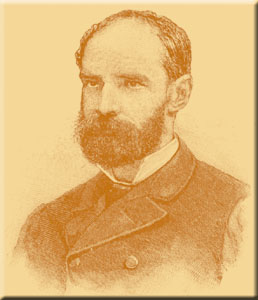|

|
Photo: ArtToday - Just for viewing
Not download - Not save
|
Could a man write a 16 volume work thinking no one would ever read it?
In 1954, Diego Barros Arana wrote his first history chronicle to tell in great detail the facts just as they happened. He was following the advice of Mr. Andrés Bello “Write on, young man. No one reads in Chile.”
Clearly both wrote for people to read their work and to influence the mind of both their contemporary and future generations, as was, indeed, the case.
TRIVIA
Barros Arana was appointed ambassador of Chile to Argentina. He was also ambassador to Uruguay and Brazil.
Barros Arana was elected representative (diputado) in 1867, 1870, and 1886.
|
Diego Barros Arana was born in Santiago de Chile on August 16, 1930. Encouraged by his father, since he was very young, he soon learned and loved reading and studying. According to historian Sergio Villalobos, “he mastered religion, world history, history of the Americas, European literature, the classics, and Spanish and Latin American writers; he spoke English and was very proficient in French as though these were his own native languages. He was not an alien to art, painting and sculpture while he, himself, used to do some drawing” at the peak of his career.
THE FAMILY
With several brothers and sisters, the son of Diego Antonio Barros Fernandez (Chilean) and Martina Arana Andonaegui (Argentine), Barros Arana was married in 1854 to Rosalia Izquierdo Urmeneta.
|
Our man, an authentic representative of the 19th Century enlightened liberalism had to go into exile in 1959. On his way through Argentina, Uruguay, Brazil, France, England, and Spain, he explored archives, visited libraries, and collected historic data to be used as the foundation for his monumental “Historia General de Chile” (General History of Chile) an encyclopedic chronicle on the history of the country from the discovery of the land to the 1833 Constitution.
It took Barros Arana nearly 20 years, from 1884 to 1902, to write the more than 10,000 pages published in 16 volumes. Neglected for over 70 years, the epopee was published again in March 2000. To everyone’s surprise it ranked 4th among the most sold “non fiction” books during the following month.
|
Force … can subdue a multitude but never rule a society.
can subdue a multitude but never rule a society.

|
Barros Arana’s work, essential to study the history of Chile is distinctive for its rigorous research and fact presentation without qualifications or interpretations; just abundantly documented facts.
His work as a historian was paramount. But his involvement in reforming Chilean education was even more significant.
OTHER WORKS
Las Campañas de Chiloé (Chiloe’s Campaigns), 1820-1826
Historia de la Guerra del Pacífico (History of the War in the Pacific) 1879-1880
|
In addition to articles, speeches, projects and academic activities as the Dean of the National Institute, he introduced into the curriculum classes on Chemistry, Natural History, History of the Americas, and Geography.
As the Dean of the School of Philosophy and Humanities at the University of Chile, he encouraged the study of Pedagogy, once created but abandoned, and amended the class and examination curricula.
As President of the University he ruled the application of bachelor’s degrees; he created the School of Midwives (preceding the current School of Obstetrics); he organized practices in the Medical School with heads of clinics; he encouraged compiling materials for the knowledge on the Nation’s geography and he was able to publish hundreds of articles and scientific papers. Because of their abundance and quality, these papers are thought to be one of the greatest achievements of the Institution during his presidency.
Barros Arana, a free thinker, continued to work endlessly until November 4, 1907, the day when he died. You could say no significant events occurred without Barros Arana becoming involved during his entire lifetime.
Diego Barros Arana, the best of the latin spirit.
|
